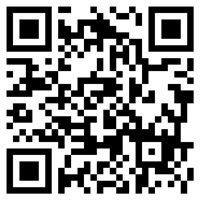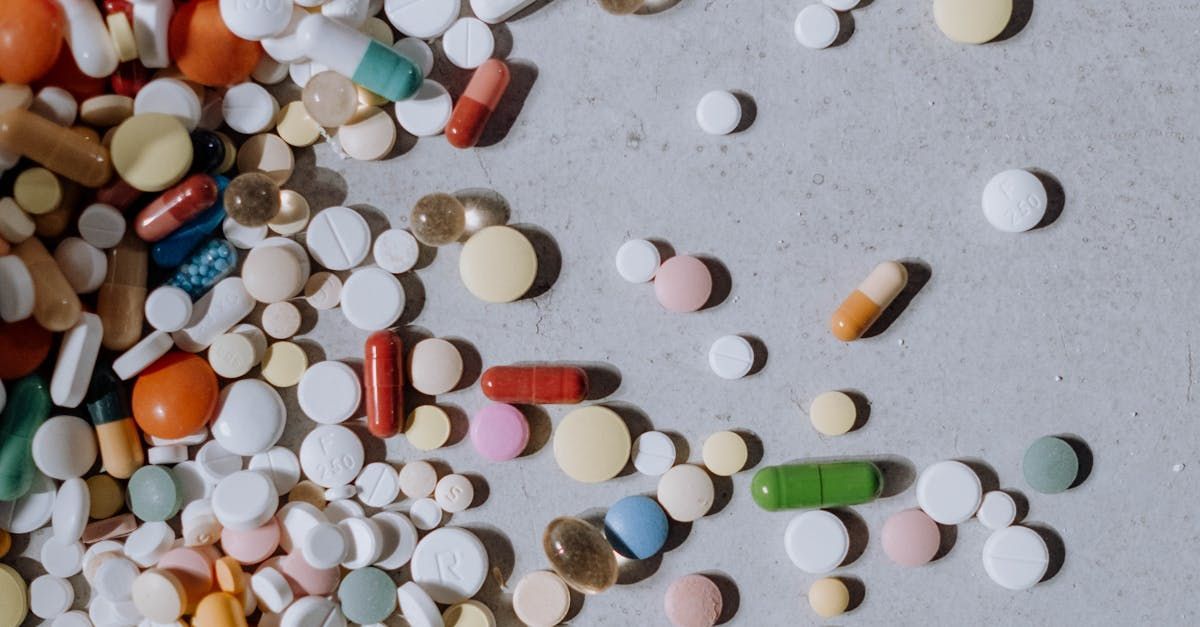425 OLD NEWMAN RD. STE 402 FRISCO, TX 75036
(469) 460-8809
Antidepressant Top Alternatives For Effective Treatment
Searching for an effective alternative to antidepressants for major depression? This guide covers non-medication treatments like Cognitive Behavioral Therapy (CBT), mindfulness, exercise, and diet changes. These methods can help manage symptoms and improve mental health without the need for medication.
Key Takeways
- Cognitive Behavioral Therapy (CBT) is a common non-medication treatment option for depression, offering flexibility and significant symptom alleviation. Mindfulness-Based Cognitive Therapy (MBCT) combines traditional cognitive therapy with mindfulness practices, reducing recurrence of depressive episodes and improving overall mental well-being.
- TMS offers a non-invasive outpatient treatment option for adults who are tired of dealing with medication side effects and are searching for remission from depression. You can schedule a free consultation at our depression treatment center located in Frisco, Texas - Bukhari Psychiatric Services.
- Physical activity, dietary changes, peer support, art therapy, and other options can also support the management of depression, significantly enhancing mental health alongside conventional treatments.
Understanding Mental Health Conditions
Mental health conditions, such as depression, are complex and multifaceted disorders that affect an individual’s emotional, cognitive, and behavioral well-being. These conditions can significantly impact daily life, relationships, and overall quality of life. Understanding mental health conditions is crucial for developing effective treatment plans and providing support to individuals affected by these conditions. Mental health encompasses a wide range of disorders, each with its own set of symptoms and challenges. By increasing awareness and understanding, we can better support those who are struggling and help them find the appropriate resources and treatments.
What is Depression?
Depression, also known as major depressive disorder, is a mental health condition characterized by persistent feelings of sadness, hopelessness, and a lack of interest in activities that were once enjoyable. It can affect anyone, regardless of age, background, or socioeconomic status. Depression can be caused by a combination of genetic, environmental, and psychological factors. Significant life events, such as the loss of a loved one, a job change, or a chronic illness, can also trigger depression. Recognizing depression as a serious mental health condition is essential for seeking appropriate treatment and support.
Identifying Depression Symptoms or Severe Depression
Identifying depression symptoms is crucial for early intervention and treatment. Common symptoms of depression include:
- Persistent feelings of sadness, hopelessness, and emptiness
- Loss of interest in activities that were once enjoyable
- Changes in appetite or sleep patterns
- Fatigue or loss of energy
- Difficulty concentrating or making decisions
- Physical symptoms, such as headaches or chronic pain
- Social withdrawal or isolation
If you or someone you know is experiencing these symptoms, it is essential to seek help from a mental health professional. Early intervention can make a significant difference in managing depression and improving overall well-being. We offer an anonymous PHQ-9 assessment on our website. If you are local to Frisco, we can help.
Cognitive Behavioral Therapy (CBT)

Cognitive Behavioral Therapy (CBT) is a widely recommended psychotherapy that helps individuals change negative thought patterns and behaviors to alleviate depression symptoms. Unlike some other treatments, CBT has been shown to be more effective than psychodynamic therapy for treating anxiety and depressive disorders. This makes it a cornerstone in the realm of mental health conditions, offering robust support for those battling mood disorders.
One of the significant advantages of CBT is its flexibility. It can be offered to patients instead of or in addition to antidepressants. This adaptability means that it can complement selective serotonin reuptake inhibitors (SSRIs) and other medications, providing a well-rounded approach to treatment. For those who prefer to avoid medication or who experience severe side effects from drugs, CBT presents a viable and effective alternative.
Studies suggest that CBT should be considered a primary psychosocial treatment for individuals with anxiety and depressive disorders. Engaging with a mental health professional through CBT can lead to significant improvements, not only in alleviating depression symptoms but also in managing other mental illnesses such as bipolar disorder and anxiety disorders.
Focusing on behavioral activation and relapse prevention, CBT equips individuals with the tools needed to maintain long-term mental health.
Mindfulness-Based Cognitive Therapy (MBCT)
Mindfulness-Based Cognitive Therapy (MBCT) is another powerful tool in managing depression. This approach combines traditional cognitive therapy with mindfulness strategies to help individuals focus on the present moment. The essence of mindfulness is to cultivate an awareness that is free from judgment, which can be instrumental in preventing the downward spiral of negative thoughts.
Research indicates that MBCT reduces the likelihood of recurring depressive episodes when integrated into standard care. Practicing mindfulness meditation helps individuals mitigate stress and improve overall mental well-being. Whether delivered in-person or through online courses, MBCT offers flexibility to accommodate various needs.
The techniques within MBCT, such as deep breathing and tai chi, are designed to enhance relaxation and mental clarity. These practices not only contribute to behavioral health but also serve as effective relapse prevention strategies. Integrating mindfulness into daily life helps individuals find a sustainable path to mental wellness.
Physical Activity and Exercise
Physical activity is a cornerstone of both physical health and mental well-being. Regular exercise has been shown to significantly reduce depression symptoms while boosting overall health. The recommended amount of exercise for adults is a minimum of 150 minutes of moderate activity weekly. This can be achieved through various forms of exercise, from brisk walking to more structured workouts.
Short bouts of physical activity throughout the day can accumulate and provide health benefits. This means that even if you have a busy schedule, finding time for small activities can contribute to your mental and physical health. The key is to find activities that you enjoy, as this increases the likelihood of maintaining a regular exercise routine.
Engaging in physical exercise not only reduces depressive symptoms but also enhances energy levels and overall physical health. Making physical activity a regular part of your routine improves mental resilience and better manages stress and other mental health conditions.
Maintaining a balanced diet can play a significant role in reducing stress and enhancing mood. While it may seem simple, what we eat profoundly affects our mental health. Incorporating a variety of fruits, vegetables, whole grains, and lean proteins into your diet can provide the essential nutrients your body and mind need to function optimally. Mindful dietary choices support mental health and overall well-being.
Transcranial Magnetic Stimulation (TMS)
Transcranial Magnetic Stimulation (TMS) is a breakthrough non-invasive treatment that utilizes magnetic pulses to stimulate brain cells, aiming to alleviate symptoms of depression. TMS is recognized as a safe, non-invasive procedure that uses magnetic fields to stimulate nerve cells in the brain associated with mood regulation. This therapy, often referred to as repetitive transcranial magnetic stimulation, involves numerous magnetic pulses delivered in one session, typically conducted in an outpatient setting. Electroconvulsive therapy is another treatment option for severe depression.
Clinical data suggests that TMS is more effective than traditional treatments for severe depression, especially when other therapies have failed. This makes TMS an appealing option for those who have not had success with conventional antidepressant medications. The non-invasive nature of TMS, coupled with its targeted approach, offers a promising solution for many patients.
Despite its effectiveness, TMS can cause short-term side effects like headaches and dizziness. However, these are generally mild and transient. Regulators and insurers, including Medicare, consider TMS a safe and effective treatment for major depressive disorder in adults who have not found relief through medications. This broader acceptance underscores its potential as a mainstream treatment option.
How TMS Therapy Can Help When Antidepressants Aren’t Enough
For patients who have not found relief through antidepressant medications, TMS offers a safe and effective alternative. This therapy has been particularly beneficial for those with major depressive disorder who have not responded to traditional treatments. TMS works by using magnetic energy to stimulate specific areas of the brain associated with mood regulation, thereby easing depression symptoms.
TMS is recognized as a safe and effective option for treating major depressive disorder in adults who have not found relief through medications. About two-thirds of patients experience remission or at least have their symptoms abate by half. The non-invasive nature and minimal side effects make TMS a viable option for long-term depression management.
How TMS Therapy Can Help When Antidepressants Aren’t Enough
For patients who have not found relief through antidepressant medications, TMS offers a safe and effective alternative. This therapy has been particularly beneficial for those with major depressive disorder who have not responded to traditional treatments. TMS works by using magnetic energy to stimulate specific areas of the brain associated with mood regulation, thereby easing depression symptoms.
TMS is recognized as a safe and effective option for treating major depressive disorder in adults who have not found relief through medications. About two-thirds of patients experience remission or at least have their symptoms abate by half. The non-invasive nature and minimal side effects make TMS a viable option for long-term depression management.
Deep Transcranial Magnetic Stimulation (Deep TMS)
Deep Transcranial Magnetic Stimulation (Deep TMS) is an advanced version of TMS that penetrates deeper brain regions, potentially enhancing treatment outcomes for severe depression. This technique employs a specialized helmet to deliver magnetic pulses that reach deeper brain structures, thereby improving its effectiveness. Clinical studies have indicated promising efficacy for Deep TMS in treating individuals with severe depression compared to standard TMS.
Recent advancements in TMS protocols have led to rapid treatment regimens, significantly increasing the pulse intensity and potentially improving outcomes. This advanced technique is particularly beneficial for those with major depressive disorder who did not respond to standard treatments, offering new hope for effective management.
Good Sleep Habits and Hygiene
Establishing a consistent sleep routine can significantly improve sleep quality and mental health. Maintaining a regular daytime routine supports the body’s circadian rhythm, leading to better sleep. Avoiding stimulants like caffeine and nicotine in the evening is essential for better sleep. Creating a sleep-conducive environment by reserving the bed solely for sleep can enhance restfulness.
Engaging in relaxation techniques before bed, such as taking a bath or practicing deep breathing, can aid in falling asleep. Keeping a sleep diary may also help individuals track their sleep patterns and improve sleep hygiene. By prioritizing good sleep hygiene, you can support your mental health and overall well-being.
Stress Management Techniques to Ease Depression Symptoms
Managing stress can significantly alleviate symptoms of anxiety and depression. Taking breaks and allowing time for relaxation are essential for managing stress effectively. Identifying stress triggers is crucial for effective stress management. Practices like guided imagery and meditation enhance relaxation and mental clarity.
Engaging in arts activities can lead to significant reductions in stress and anxiety levels. Whether through painting, music, or other creative outlets, these activities provide a therapeutic way to express emotions and relieve stress. Seeking professional help can be important for those struggling to manage stress independently.
Incorporating these stress management techniques into daily life helps individuals reduce symptoms and improve overall mental health. Combined with mindfulness-based cognitive therapy, these practices serve as powerful tools for relapse prevention and long-term mental wellness.
Peer Support and Community Engagement with a Mental Health Professional
Engagement in peer support interventions has been shown to significantly lower depressive symptoms when compared to standard care. Peer support programs make mental health resources more accessible by reducing barriers such as costs and transportation. Individuals participating in peer support groups often experience decreased feelings of isolation and improved self-management of their condition.
The mutual sharing of experiences within peer support groups can enhance participants’ coping strategies and overall well-being. These groups foster an environment of hope and resilience through shared experiences. Participation in peer support groups offers essential emotional support and shared experiences, crucial for coping with depression.
Complementary Therapies: Non Pharmacological Treatment for Depression
Complementary therapies like acupuncture, reflexology, and yoga can complement traditional treatments by promoting relaxation and reducing stress. Acupuncture is an ancient practice aimed at preventing and treating specific health conditions. Reflexology involves applying pressure to specific points on the body to promote healing and relaxation. Yoga combines physical postures, breathing exercises, and meditation, contributing to overall well-being.
These alternative therapies offer additional options for those seeking to ease depression symptoms. While they should not replace traditional treatments, they can be valuable additions to a comprehensive treatment plan. Always consult with a healthcare professional before incorporating new therapies into your routine.
Acupuncture and Reflexology
Acupuncture and reflexology are alternative therapies that have been used to ease depression symptoms. Acupuncture involves the insertion of thin needles into specific points on the body to stimulate the release of neurotransmitters, such as serotonin and dopamine, which can help regulate mood. Reflexology, on the other hand, involves the application of pressure to specific points on the feet or hands to stimulate the body’s natural healing processes.
While these therapies may not be suitable for everyone, they can be used in conjunction with other treatments, such as medication or therapy, to provide additional support and relief from depression symptoms. It is essential to consult with a healthcare professional before trying any alternative therapy. These therapies can offer a complementary approach to traditional treatments, helping to ease depression symptoms and improve overall mental health.
The Arts & Creative Therapy

Arts and creative therapies utilize various methods for emotional expression, including painting, clay work, music, and drama therapy. These therapies offer a unique avenue for expressing emotions and experiences that may be hard to articulate verbally. For individuals dealing with depression, arts and creative therapies can provide a therapeutic outlet for managing symptoms.
These therapies can also improve cognitive functions and promote self-esteem among participants. Fostering a sense of social identity separate from mental health issues, creative arts activities enhance overall well-being. Participation in these activities can be a powerful supplement to traditional psychotherapy and counseling.
Ecotherapy - Use the Environment
Ecotherapy is a therapeutic treatment involving outdoor activities in nature. Before starting ecotherapy, therapists discuss the client’s goals and any previous experiences related to nature. Therapists may provide ‘nature prescriptions,’ recommending clients spend time outdoors in specific locations.
During ecotherapy, clients may engage in mindful breathing and focus on their sensory experiences in nature. Nature can serve as a metaphorical reflection of personal experiences and relationships during the therapeutic process.
Post-therapy reflection is encouraged, where clients process their emotions and experiences with their therapist. Connecting with nature helps individuals find a therapeutic path to mental wellness.
Herbal Supplements
Herbal supplements like St. John’s wort are commonly used for symptoms of depression and anxiety. However, the effects, correct dosage, and interactions of St. John’s wort with other medications are uncertain. It is available without a prescription, making it accessible for many. Consulting with a doctor or pharmacist is essential before taking herbal remedies alongside antidepressants due to potential interactions.
While herbal supplements can be helpful, they should be used with caution and under professional guidance. These alternative therapies can complement other treatments, but it is crucial to consider potential interactions with other medications and herbal remedies.
Conclusion
Exploring alternatives to antidepressants opens up a myriad of effective non-medication treatments for depression. From Cognitive Behavioral Therapy (CBT) and Mindfulness-Based Cognitive Therapy (MBCT) to physical activity, dietary changes, and advanced treatments like Transcranial Magnetic Stimulation (TMS), there are numerous ways to manage depression beyond traditional medications. Each of these treatments offers unique benefits, whether through altering thought patterns, enhancing physical health, or stimulating brain activity.
By incorporating good sleep hygiene, stress management techniques, peer support, complementary therapies, arts and creative therapies, ecotherapy, and herbal supplements, individuals can create a comprehensive and personalized approach to managing their mental health. These diverse methods can work synergistically to reduce symptoms, improve overall well-being, and provide long-term resilience against depression. Remember, it is always essential to consult with healthcare professionals when considering new treatments to ensure they align with your specific needs and conditions.
Local to Frisco Texas? Our team offers expert help, including TMS Therapy, if you or someone close to you requires assistance with managing depression. Give us a call or complete our online contact form today!
References
- Yam, Philip. “Brain stimulation poised to move from last resort to frontline treatment.” Proceedings of the National Academy of Sciences of the United States of America vol. 121,7 (2024): e2401731121. doi:10.1073/pnas.2401731121
What is Cognitive Behavioral Therapy (CBT)?
Cognitive Behavioral Therapy (CBT) is a highly effective psychotherapy that focuses on altering negative thought patterns and behaviors to reduce symptoms of depression and anxiety. Its structured approach often proves more beneficial than other therapeutic methods.
How does Mindfulness-Based Cognitive Therapy (MBCT) help with depression?
MBCT effectively aids in depression by blending cognitive therapy techniques with mindfulness practices, promoting present-moment awareness to prevent relapse and enhance overall mental health.
What are the benefits of Transcranial Magnetic Stimulation (TMS)?
Transcranial Magnetic Stimulation (TMS) offers a non-invasive solution for alleviating symptoms of depression, particularly for patients unresponsive to conventional treatments, and is considered safe and effective by regulatory authorities. This makes it a valuable option for individuals seeking alternative mental health therapies.
Can dietary changes impact depression?
Yes, dietary changes can significantly impact depression by reducing stress and enhancing mood, ultimately supporting overall mental health.
What is Deep Transcranial Magnetic Stimulation (Deep TMS)?
Deep Transcranial Magnetic Stimulation (Deep TMS) is an advanced treatment modality that delivers magnetic pulses via a specialized helmet to penetrate deeper brain regions, potentially improving outcomes for severe depression. Its ability to target deeper structures sets it apart from traditional TMS.
Share Article

OUR RELATED ARTICLES
Click here to leave us a review or scan the QR Code shown:

CONTACT
425 OLD NEWMAN RD. STE 402 FRISCO, TX 75036
- Mon - Fri
- -
- Sat - Sun
- Closed
(817) 898-7402
info@bukharipsychiatricservices.com
MAIN LINKS
Click here to leave us a review or scan the QR Code below:

Click here to leave us a review or scan the QR Code above:
CONTACT
425 OLD NEWMAN RD. STE 402 FRISCO, TX 75036
(469) 460-8809
- Mon - Fri
- -
- Sat - Sun
- Closed
(817) 898-7402
MAIN SERVICES
Copyright Bukhari Psychiatric Services. All right reserved.







